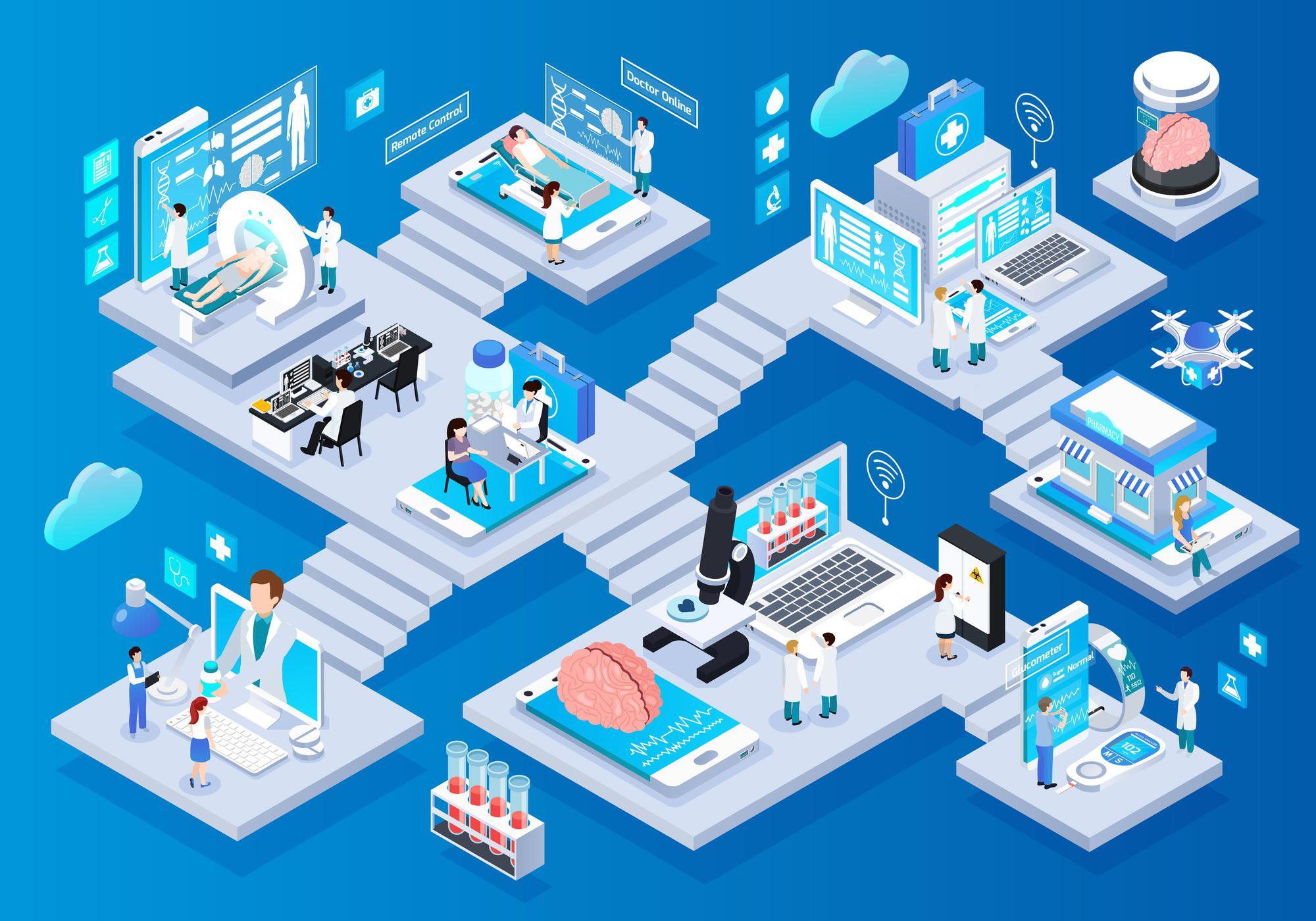Navigating the Future: Digital Transformation in Healthcare

Introduction
The healthcare industry is undergoing a profound transformation, driven by rapid advancements in technology. Digital transformation in healthcare is revolutionizing the way healthcare is delivered, improving patient outcomes, streamlining operations, and enhancing overall efficiency. In this article, we will explore the key components and benefits of this transformative journey and the challenges that healthcare organizations face as they embrace digital innovation.
The Digital Healthcare Landscape
- Electronic Health Records (EHRs)
One of the cornerstones of digital transformation in healthcare is the adoption of Electronic Health Records (EHRs). EHRs replace paper-based records with digital systems, enabling healthcare providers to access patient information securely and efficiently. This digitalization not only reduces the risk of errors but also allows for the seamless sharing of patient data across different healthcare providers, resulting in improved coordination of care.
- Telemedicine and Remote Monitoring
The rise of telemedicine has been a game-changer, especially in the wake of the COVID-19 pandemic. Telemedicine enables patients to receive medical consultations and services remotely, reducing the need for in-person visits. Additionally, remote monitoring devices, such as wearable fitness trackers and IoT-enabled medical devices, allow healthcare professionals to monitor patients' vital signs and health data in real-time, leading to early intervention and personalized care.
- Artificial Intelligence (AI) and Machine Learning
AI and machine learning have found extensive applications in healthcare. From diagnosing diseases and predicting patient outcomes to optimizing treatment plans and drug discovery, these technologies are enhancing healthcare decision-making. AI-driven algorithms can analyze vast amounts of medical data to uncover patterns and insights that may not be apparent to human clinicians.
- Health Information Exchange (HIE)
Interoperability is a critical aspect of digital transformation in healthcare. Health Information Exchange (HIE) platforms enable the secure sharing of patient information among different healthcare providers and systems. This facilitates continuity of care, reduces redundant tests, and enhances the patient experience.
Benefits of Digital Transformation in Healthcare
- Improved Patient Care
Digital transformation in healthcare places the patient at the center of care. With EHRs, telemedicine, and AI-driven tools, healthcare providers can deliver more personalized and timely care, resulting in better health outcomes for patients.
- Enhanced Efficiency
Automation of administrative tasks and streamlined processes reduces the administrative burden on healthcare professionals, allowing them to focus more on patient care. This increased efficiency can lead to cost savings and improved resource allocation.
- Data-Driven Decision Making
Access to comprehensive patient data and the use of AI-driven analytics enable evidence-based decision-making. This, in turn, helps healthcare organizations identify trends, anticipate patient needs, and make more informed decisions about resource allocation.
- Increased Patient Engagement
Digital tools empower patients to take a more active role in their healthcare. Patients can access their medical records, communicate with healthcare providers, and monitor their health through mobile apps and online portals, fostering greater engagement and adherence to treatment plans.
Challenges and Considerations
While the benefits of digital transformation in healthcare are compelling, there are challenges that healthcare organizations must address:
-
Data Security and Privacy: Protecting patient data is paramount, and healthcare organizations must invest in robust cybersecurity measures to safeguard sensitive information.
-
Interoperability: Ensuring that different systems can communicate and share data seamlessly remains a challenge, requiring industry-wide standards and cooperation.
-
Training and Adoption: Healthcare professionals need training to effectively use digital tools and adapt to new workflows.
-
Cost and Resource Allocation: Implementing digital solutions can be expensive, and healthcare organizations must carefully plan their budgets and allocate resources effectively.
Conclusion
Digital transformation in healthcare is reshaping the industry, offering numerous benefits for both patients and providers. From electronic health records to telemedicine and AI-driven analytics, technology is improving patient care, enhancing efficiency, and enabling data-driven decision-making. However, healthcare organizations must navigate challenges related to data security, interoperability, and resource allocation to fully realize the potential of digital innovation. As the healthcare landscape continues to evolve, embracing digital transformation will be essential for delivering high-quality, patient-centric care in the future.
- Questions and Answers
- Opinion
- Motivational and Inspiring Story
- Technology
- Live and Let live
- Focus
- Geopolitics
- Military-Arms/Equipment
- Sicherheit
- Economy
- Beasts of Nations
- Machine Tools-The “Mother Industry”
- Art
- Causes
- Crafts
- Dance
- Drinks
- Film/Movie
- Fitness
- Food
- Spiele
- Gardening
- Health
- Startseite
- Literature
- Music
- Networking
- Andere
- Party
- Religion
- Shopping
- Sports
- Theater
- Health and Wellness
- News
- Culture

